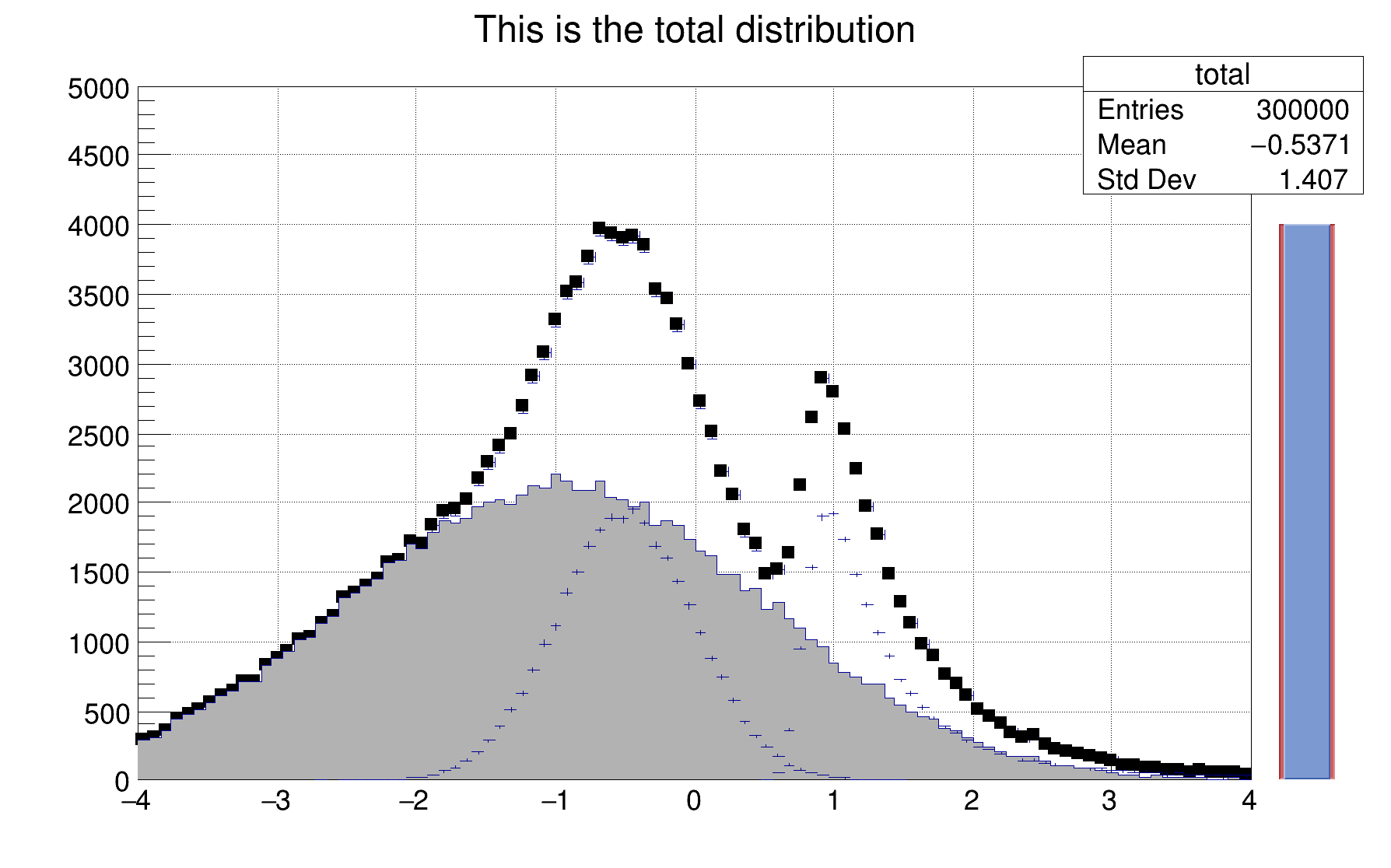
 Demo of Timers.
Demo of Timers.
Simple example illustrating how to use the C++ interpreter to fill histograms in a loop and show the graphics results This program is a variant of the tutorial "hsum". It illustrates the use of Timers.

void hsumUpdate()
{
if (slider) slider->
SetRange(0, ::progressRatio);
}
void hsumTimer(
Int_t nfill=100000)
{
c1 =
new TCanvas(
"c1",
"The HSUM example",200,10,600,400);
auto total =
new TH1F(
"total",
"This is the total distribution",100,-4,4);
auto main =
new TH1F(
"main",
"Main contributor",100,-4,4);
auto s1 =
new TH1F(
"s1",
"This is the first signal",100,-4,4);
auto s2 =
new TH1F(
"s2",
"This is the second signal",100,-4,4);
total->SetMarkerStyle(21);
total->SetMarkerSize(0.7);
s2->SetFillColor(46);
total->SetMaximum(nfill/20.);
s2->Draw("same");
"test",4.2,0,4.6,0.8*
total->GetMaximum(),38);
TTimer timer(
"hsumUpdate()",300);
timer.TurnOn();
for (
Int_t i=0; i<nfill; i++) {
s2->Fill(xs2,0.2);
}
timer.TurnOff();
hsumUpdate();
}
static unsigned int total
R__EXTERN TRandom * gRandom
R__EXTERN TSystem * gSystem
virtual void SetFillColor(Color_t fcolor)
Set the fill area color.
1-D histogram with a float per channel (see TH1 documentation)}
virtual Double_t Gaus(Double_t mean=0, Double_t sigma=1)
Samples a random number from the standard Normal (Gaussian) Distribution with the given mean and sigm...
virtual void SetSeed(ULong_t seed=0)
Set the random generator seed.
virtual Double_t Landau(Double_t mean=0, Double_t sigma=1)
Generate a random number following a Landau distribution with location parameter mu and scale paramet...
A specialized TPad including a TSliderBox object.
virtual void SetRange(Double_t xmin=0, Double_t xmax=1)
Set Slider range in [0,1].
virtual Bool_t ProcessEvents()
Process pending events (GUI, timers, sockets).
Handles synchronous and a-synchronous timer events.
int main(int argc, char **argv)
- Author
- Rene Brun
Definition in file hsumTimer.C.
